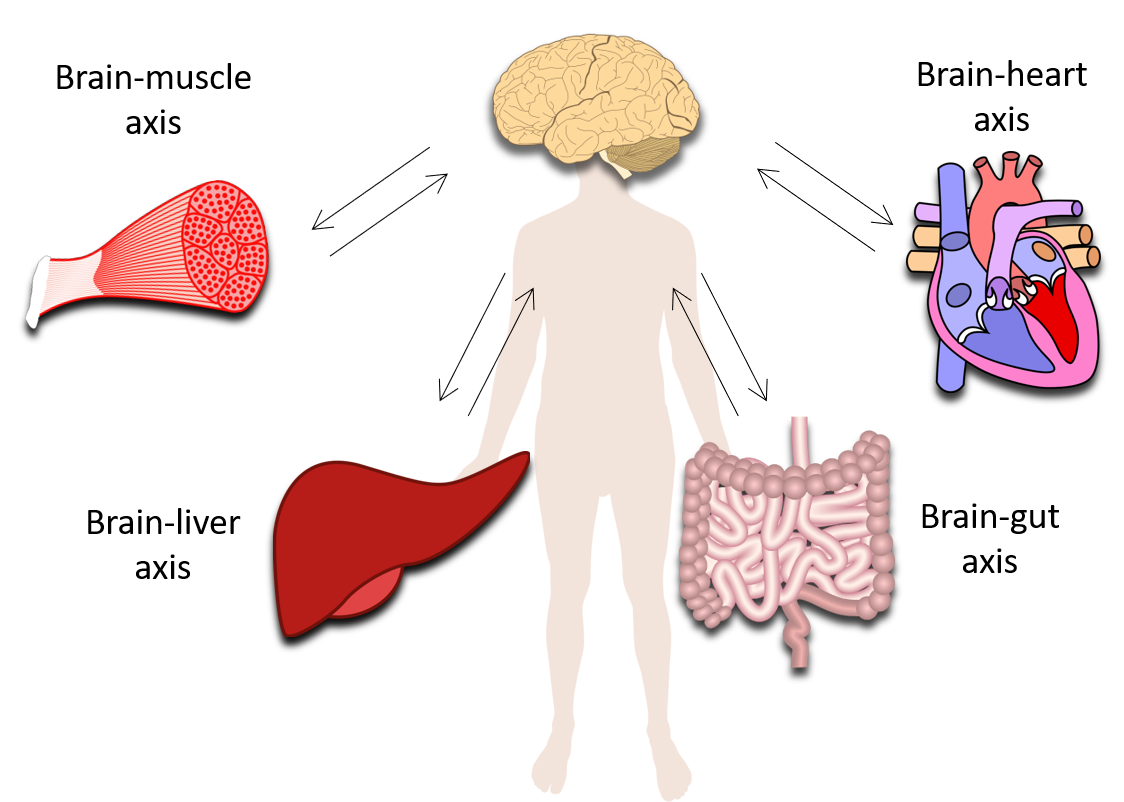An efficient, fine-tuned interplay between the two via neuronal, vascular and humoral mechanisms is essential to maintain bodily functions and homeostasis. A disturbance of brain-body interactions is a major contributor to many diseases affecting the brain, heart, liver, and metabolism. The mission of this group is to unravel such interactions and to delineate how they reciprocally determine the structure and function of the brain, the body and its organs in both health and disease. Applying cutting-edge MRI methods, in combination with other approaches, the BBI group will measure and map physiological functions to cast light on previously overlooked areas.

Figure: Schematic representation of the research targets of the group. Clipart from Wikimedia Commons.
As an example, the group is undertaking a study in diabetic neuropathy, a condition which affects not only sensory and motor neurons, but also the autonomic nerve fibers, often with severe consequences for the patient. One central question we wish to address is how diabetic neuropathy compromises regional autoregulation of cerebral blood flow and hereby brain function and structure. Other research areas include changes in regulation of the functioning of the heart, liver, gut and skeletal muscles , including cardiovascular changes triggered by liver cirrhosis and chronic heart failure.





